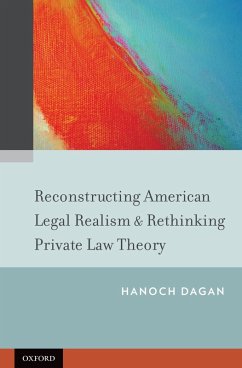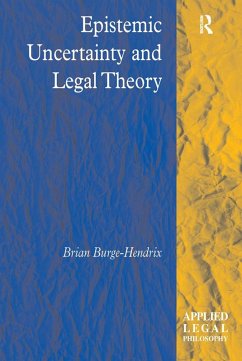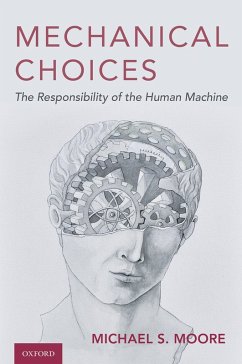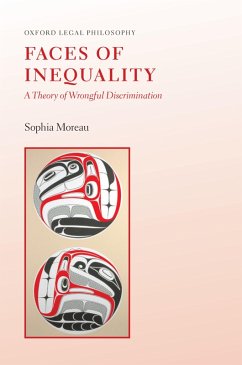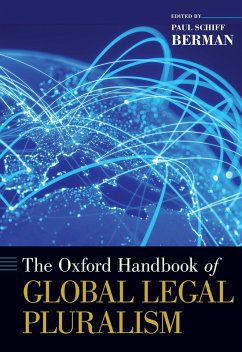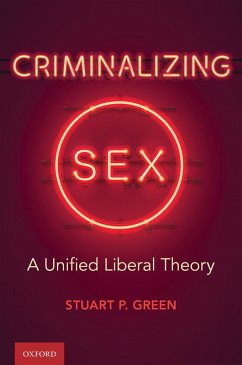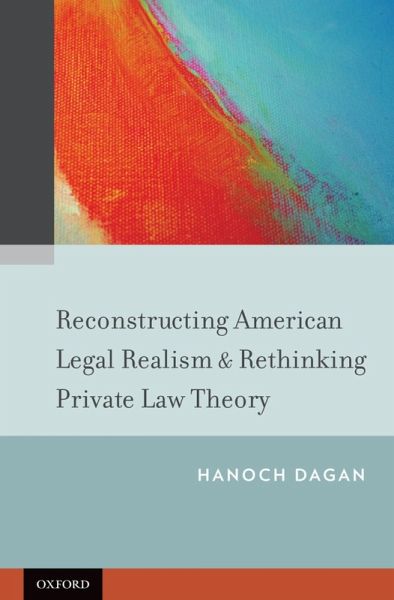
Reconstructing American Legal Realism & Rethinking Private Law Theory (eBook, ePUB)
Versandkostenfrei!
Sofort per Download lieferbar
34,95 €
inkl. MwSt.
Weitere Ausgaben:

PAYBACK Punkte
17 °P sammeln!
In the myriad choices of interpretation judges face when confronted with rules and cases, legal realists are concerned with how these doctrinal materials carry over into judicial outcomes. What can explain past judicial behavior and predict its future course? How can law constrain judgments made by unelected judges? How can the distinction between law and politics be maintained despite the collapse of law's autonomy in its positivist rendition? In Reconstructing American Legal Realism & Rethinking Private Law Theory, Hanoch Dagan provides an innovative and useful interpretation of legal realis...
In the myriad choices of interpretation judges face when confronted with rules and cases, legal realists are concerned with how these doctrinal materials carry over into judicial outcomes. What can explain past judicial behavior and predict its future course? How can law constrain judgments made by unelected judges? How can the distinction between law and politics be maintained despite the collapse of law's autonomy in its positivist rendition? In Reconstructing American Legal Realism & Rethinking Private Law Theory, Hanoch Dagan provides an innovative and useful interpretation of legal realism. He revives the legal realists' rich account of law as a growing institution accommodating three sets of constitutive tensions-power and reason, science and craft, and tradition and progress-and demonstrates how the major claims attributed to legal realism fit into this conception of law. Dagan seeks to rein in realist descendants who have become fixated on one aspect of the big picture, and to dispel the misconceptions that those gone astray represent the tradition accurately or that realism is now merely a historical signpost. He draws upon the realist texts of Oliver Wendell Holmes, Karl Llewellyn, and others to explain how legal realism offers important and unique jurisprudential insights that are not just a part of legal history, but are also relevant and useful for a contemporary understanding of legal theory. Building on this realist conception of law and enriching its texture, Dagan addresses more particular jurisprudential questions. He shows that the realist achievement in capturing law's irreducible complexity is crucial to the reinvigoration of legal theory as a distinct scholarly subject matter, and is also inspiring for a host of other, more specific theoretical topics, such as the rule of law, the autonomy and taxonomy of private law, the relationships between rights and remedies, and the pluralism and perfectionism that typify private law.
Dieser Download kann aus rechtlichen Gründen nur mit Rechnungsadresse in A, B, BG, CY, CZ, D, DK, EW, E, FIN, F, GR, HR, H, IRL, I, LT, L, LR, M, NL, PL, P, R, S, SLO, SK ausgeliefert werden.




